Meet the 8 up-and-coming researchers selected to participate in WiGRAPH’s Rising Stars program, a two-year program of mentorship and workshops co-located with SIGGRAPH 2025 and 2026 to explore potential career trajectories as they enter the job market.
Click on any of our Rising Stars to learn more about them!
Meet Xuwen Chen
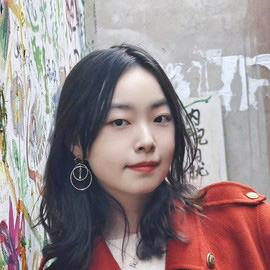
Research Vision: I’m passionate about building a high-fidelity “world model” — a simulation framework that not only reflects the physical laws of the real world, but also reconstructs and responds to them in richly interactive digital environments. Such a simulation can serve as an environment for learning, control, and creative exploration, and for training AI agent and generating digital humans in dynamic virtual worlds.
Toward this vision, my research focuses on two core challenges that determine the fidelity and expressiveness of physical simulation: thin-shell dynamics — as in cloth, garments, and magnetically driven soft objects — and continuous collision handling. This includes questions such as: how can we fit garments naturally, smoothly, and without interpenetration onto moving digital human bodies? How can we simulate fluttering water sleeves with a sense of elegance and flow? How can we artistically tile layered fabrics in a way that reflects real-world craftsmanship?
I'm drawn to these problems that lie at the intersection of computer graphics, mathematics, physics, and AI. By addressing these problems, I further envision simulation as a creative medium — one that bridges physical and digital worlds and facilitates embodied, artistically and culturally grounded storytelling.
Bio: Xuwen Chen is a third-year Ph.D. student at Peking University, advised by Prof. Baoquan Chen and co-advised by Prof. Mengyu Chu. She has also received wonderful mentorship from Dr. Bin Wang, Prof. Bo Zhu, Prof. Meng Zhang, Dr. Tuur Stuyck and Dr. Egor Larionov during her study and research internship with Meta Gemini team. Xuwen earned her B.S. with honors from the AI Turing Program at Peking University in 2022. Her undergraduate thesis was recognized as one of the Top Ten at the School of EECS, and she was named a Municipal Outstanding Graduate. Outside research, Xuwen serves as the president of the Peking University Student Association of Huangmei Opera, a form of Chinese opera featuring rural folk song and dance. Inspired by the elegance of traditional Chinese arts, she hopes to bring their aesthetics into digital realms through simulation — blending technology and heritage to reinvent cultural expression.
Meet Yixin Chen
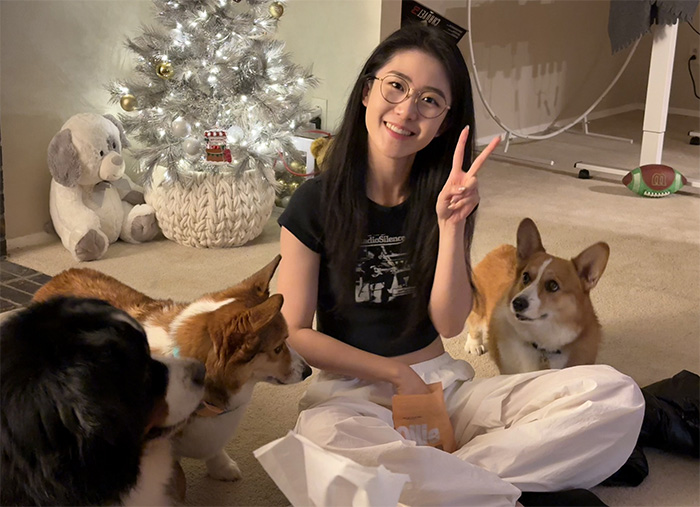
Research Vision: Fluid behavior is inherently complex, and thus, simulating and controlling it accurately and efficiently has been a longstanding challenge in computer graphics. My research mainly aims to develop high-performance, differentiable fluid simulation and control methods that balance physical accuracy with computational efficiency. My recent work has focused on using reduced-order models for fluid flow control, enabling faster and more intuitive interactions.
What motivates me most is the process of translating complex numerical methods into tools that people can actually use — tools that are scalable, responsive, and adaptable to real-world constraints while retaining physical plausibility. Ultimately, I hope to make physics-based simulations more than a backend technology — transforming it into an expressive, interactive medium that supports creativity, exploration, and practical application across disciplines.
Bio: Yixin Chen is a PhD candidate in Computer Science at the University of Toronto, where she is advised by Professor David I.W. Levin. Her research focuses on high-performance and differentiable fluid simulation and control, combining insights from numerical methods, physics, and computer graphics. During her PhD, she interned at Adobe under the mentorship of Dr. Timothy Langlois, and will join Tencent America this summer to work with Dr. Kui Wu and Professor Wei Li. Prior to her PhD, Yixin received a B.Eng. in Computer Science and Technology from ShanghaiTech University, advised by Professor Xiaopei Liu. Outside of research, she enjoys exploring different sports, reading, and cooking.
Meet Zeqi Gu
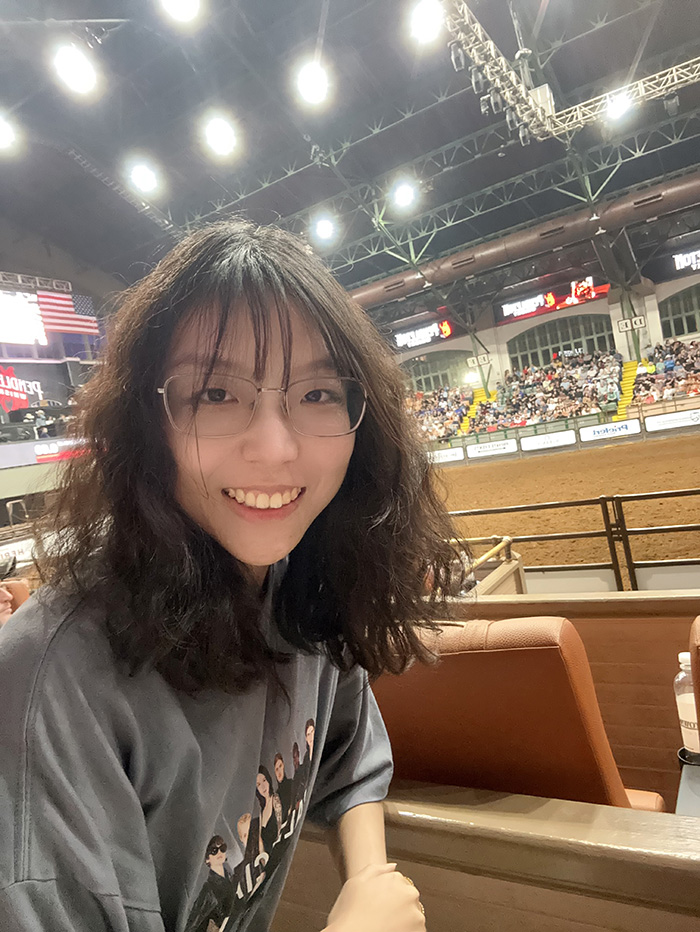
Research Vision: How can AI better co-create with human? My research aims to explore this topic by improving the quality, controllability and efficiency of generative models. As real-world creativity require cohesive understanding across diverse data types, I develop multimodal generative frameworks, which in turn, can improve the foundation model’s reasoning and understanding abilities.
Bio: Zeqi is a PhD student at Cornell Tech, co-advised by Prof.Abe Davis and Prof.Noah Snavely. Before that she received her bachelor's degree also from Cornell with double major in computer science and mathematics. Her research interests lie in the intersection of computer graphics, vision and HCI. From 2D animation, and image editing to 3D scene generation, she has developed GenAI-driven tools to simplify content creation workflows that are published at top venues. She has interned at Meta, NVIDIA, Adobe, Stanford University, and Uber.
Meet Nupur Kumari
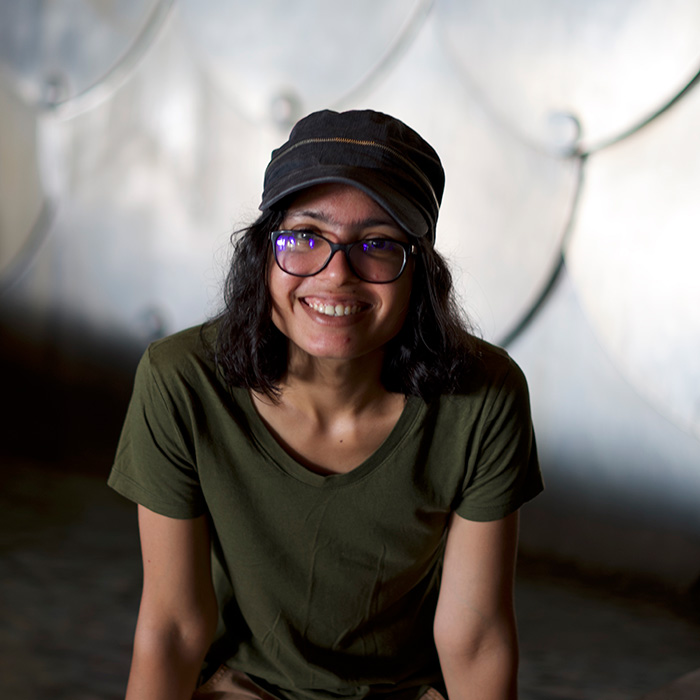
Research Vision: My research focuses on generative AI and its potential to empower creative content creation. As these models become central to how we produce images, videos, and other media, I aim to develop tools that give users more control and make generative systems easier to adapt to individual needs and styles.
In my PhD, we introduced a lightweight customization method that lets users add new concepts or styles to pre-trained models using only a few examples and minimal compute — allowing for the creation of content rooted in personal experience. I’m also committed to the responsible use of these technologies. To that end, we proposed a technique to remove copyrighted material from generative models. Looking ahead, I see these systems not as black boxes, but as transparent, flexible tools that support human creativity and intention.
Bio: Nupur is a PhD student at the Robotics Institute, Carnegie Mellon University, advised by Jun-Yan Zhu. Her research focuses on generative models, with an emphasis on user customization, controllability, and responsible content generation. She holds a bachelor’s degree in Mathematics and Computing from the Indian Institute of Technology Delhi. Prior to starting her PhD, she worked as a Machine Learning Engineer at Adobe India. During her PhD, she has also interned at Meta and Adobe Research. Outside of research, she enjoys reading fiction, watching films and anime, and exploring new forms of digital storytelling.
Meet Diana Marin
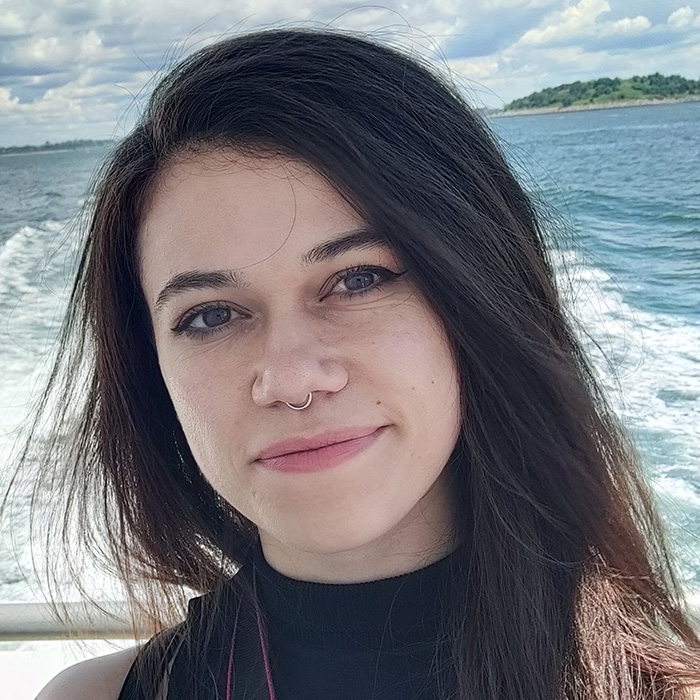
Research Vision: Making sense of unstructured 3D data is a persistent challenge in computer graphics and geometry processing. Unlike images or meshes, point clouds have no built-in structure - no connectivity, surfaces, or semantic labels. Real-world scans are often noisy, unevenly sampled, and cluttered, making it difficult to detect meaningful shapes or relationships. My research addresses this by developing principled methods to extract structure and meaning from such raw data, turning scattered points into usable geometric and topological representations. I explore how proximity and neighborhood relationships can be redefined to better reflect spatial context, perceptual cues, and global organization. This has led to new graph-based formulations and reconstruction techniques that emphasize both stability and expressiveness. My work is grounded in geometric insight and driven by applications ranging from AR/VR to structural analysis and scientific visualization. My work has been published in top-tier venues in computer graphics and geometry processing, and I’m committed to building tools that bridge raw data with higher-level understanding, making complex spaces not just visible, but legible.
Bio: Diana Marin is a postdoctoral researcher at TU Wien, working on geometric algorithms and proximity-based methods for interpreting 3D environments. She completed her bachelor’s and master’s degrees at the University of Leeds, where she was a committee member of the local student Computing Society. Diana’s journey into computer graphics began with developing educational VR games, and she has since been involved in community-building efforts as an organizer of hackathons, such as the Global Game Jam, and the CESCG student conference. Outside of research, Diana enjoys music, clay modeling, knife forging, and dabbles in amateur photography whenever the lighting is right. Whether sculpting shapes by hand or writing code to extract structure from messy data, she’s drawn to projects that combine precision with creativity.
Meet Leticia Mattos Da Silva
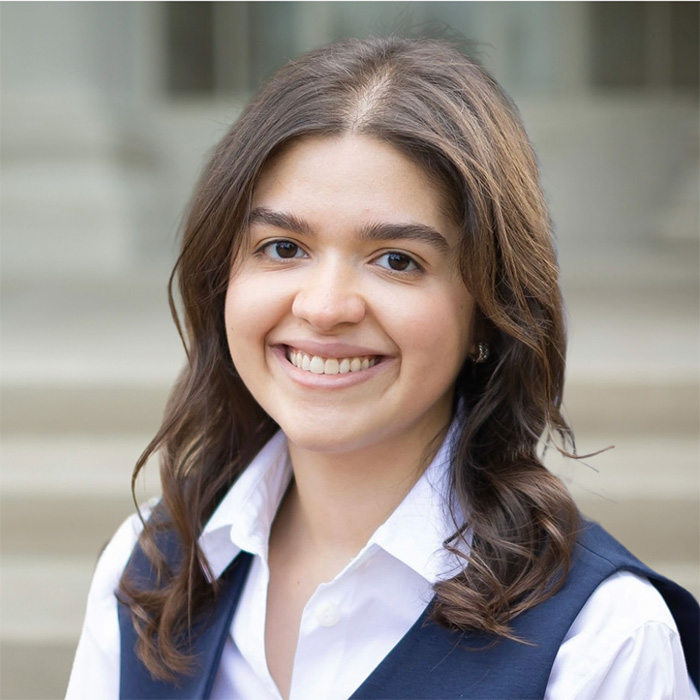
Research Vision: My research seeks to empower people with reliable and effective ways to solve geometry processing problems through the lens of partial differential equations (PDEs).
PDEs offer a powerful language for modeling many phenomena of interest in geometry processing and computer graphics, but users are often forced to compromise between efficiency, stability, and physical realism due to limitations in standard numerical approaches. Such obstacles are only more apparent when working with the nonlinear PDEs that capture more complex phenomena.
Rather than accept these trade-offs and limitations, my work seeks to understand latent mathematical structures in difficult PDEs to develop algorithms that aim to preserve physical properties, while delivering greater control and stability to practitioners.
Looking ahead, my goal is to make PDE-based methods robust and flexible enough that users can apply them with confidence and reliability, without being constrained by technical barriers. By bridging mathematical theory and the goal of usability, I aim to open new avenues for animation, design, and simulation, where advanced PDE techniques become natural extensions of a user’s creative process.
Bio: Leticia is a Ph.D. student at MIT, where she works in the Geometric Data Processing Group under the supervision of Justin Solomon. Her research involves developing numerical algorithms to solve nonlinear PDEs that appear in geometry processing. She is the recipient of two MathWorks Fellowships, as well as a Google Fellowship. Previously, she received a B.S. in Mathematics from the University of California, Los Angeles, and in summers past, she has conducted research as part of internships at the Flatiron Institute, at Adobe, Inc. and at the Fields Institute. In her spare time, Leticia enjoys watching telenovelas, pretending to be a great chef in her home kitchen and doing Pilates.
Meet Ningna Wang
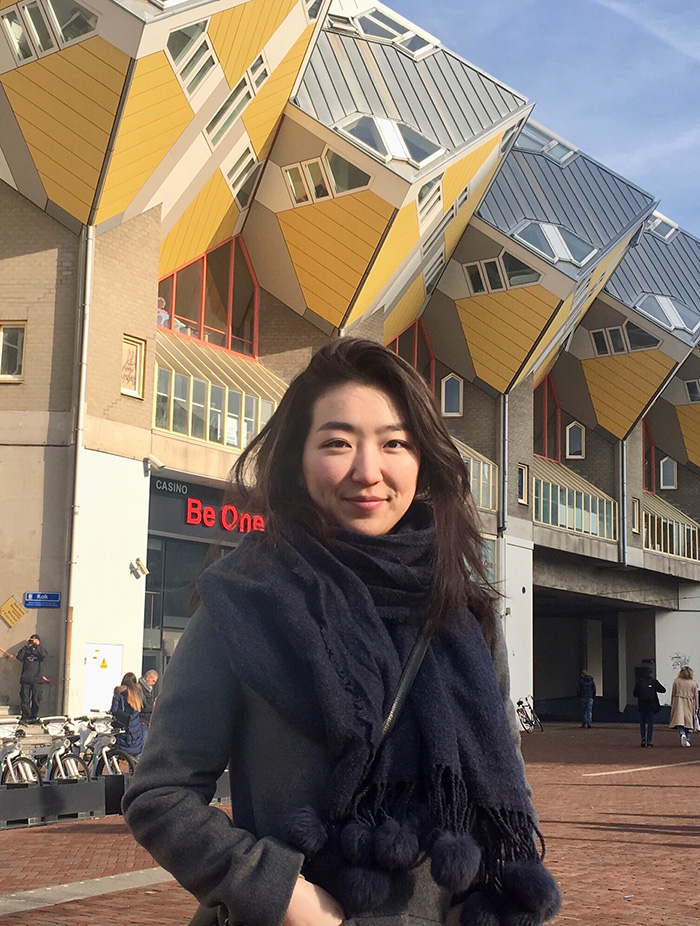
at Dallas
Research Vision: Efficient storage and processing of 3D geometric data is essential to unlocking the full potential of recent advances in artificial intelligence. I am broadly interested in developing compact and efficient representations of 3D geometry that support both human understanding and machine processing. My work explores medial axis and other skeletal abstractions to capture intrinsic shape properties such as symmetry and part decomposition, while also advancing geometric processing for standard representations like meshes and point clouds. These structures not only reveal perceptually meaningful organization but also serve as effective priors for optimization, editing, and generative tasks. My broader goal is to bridge geometry processing with learning-based methods, using geometric reasoning to inform data-driven decisions, and vice versa. Looking ahead, I aim to deepen the connection between geometric abstraction and high-level understanding, enabling more intuitive and intelligent interactions with 3D data across applications in design, graphics, and robotics.
Bio: Ningna Wang is a final-year Ph.D. candidate in Computer Science at the University of Texas at Dallas and an incoming postdoctoral researcher at Columbia University. Her research focuses on 3D geometry processing, with an emphasis on developing compact and interpretable shape representations. She has published multiple papers at SIGGRAPH and other top-tier venues, and her work was recognized with SIGGRAPH Best Paper Awards in 2023. Before her Ph.D., she worked as a Senior Software Developer at Booking.com in Amsterdam. Ningna holds a Master’s degree from Carnegie Mellon University and a Bachelor’s degree from Jilin University in China. Outside of research, she enjoys visiting fine art museums, hiking, and traveling.
Meet Jiayi (Eris) Zhang
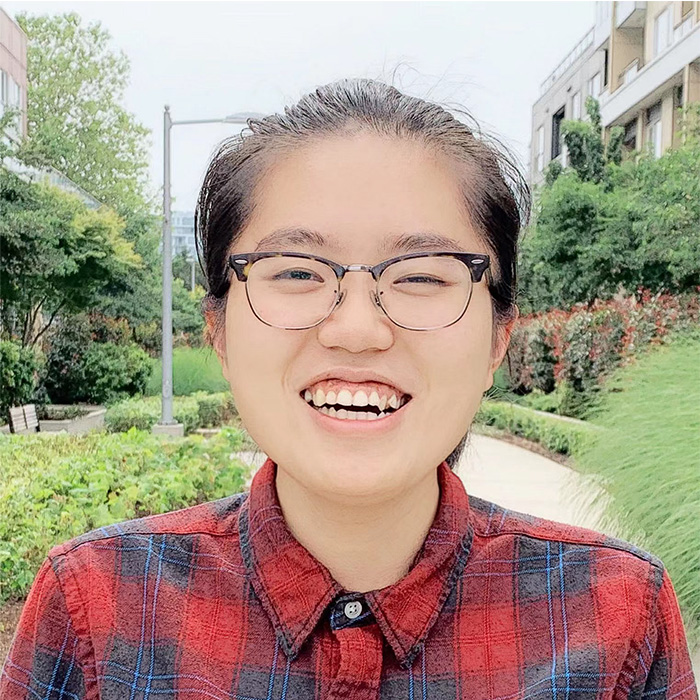
Research Vision: In today’s technological renaissance, advances in high-performance computing, personal imaging, AR/VR, and robotics are rapidly transforming both digital and physical spaces. To truly bridge the gap between the real and the virtual, physics-based modeling and simulation are essential for turning static environments into dynamic, realistic, and interactive experiences where users can engage, learn, and create. Yet, a persistent challenge across applications — from digital content creation to robotics — is the trade-off between speed and fidelity. Coarse, low-fidelity models support real-time performance and rapid iteration but often sacrifice realism and accuracy. High-fidelity simulations capture intricate detail and complex interactions but are too computationally expensive for interactive or time-sensitive use.
My research addresses this challenge by developing intelligent algorithms, models, and tools that enhance creativity and productivity in design, animation, and simulation. In particular, I extend the concept of level-of-detail (LoD) from rendering and geometry to physical simulation, enabling dynamic transitions between coarse and fine resolutions. Ultimately, I aim to build simulation systems that balance speed, fidelity, and controllability — making high-quality simulation more accessible and scalable across both creative and autonomous pipelines.
Bio: Jiayi (Eris) Zhang is a fourth-year PhD candidate at Stanford University, advised by Prof. Doug James. She earned her undergraduate degree in Computer Science and Mathematics from the University of Toronto, where she conducted research under the supervision of Prof. Alec Jacobson. She is a Stanford Reed-Hodgson Fellow, a Young Researcher at the Heidelberg Laureate Forum, an MIT EECS Rising Star, and a recipient of the Adobe Women in Technology Scholarship, the Roblox Graduate Fellowship, and the Nvidia Graduate Fellowship. She has completed five internships at Adobe, collaborating closely with Dr. Danny Kaufman, and is currently interning at Nvidia. Outside of research, she is an avid amateur tennis player 🎾 and enjoys photography, art, and traveling.



